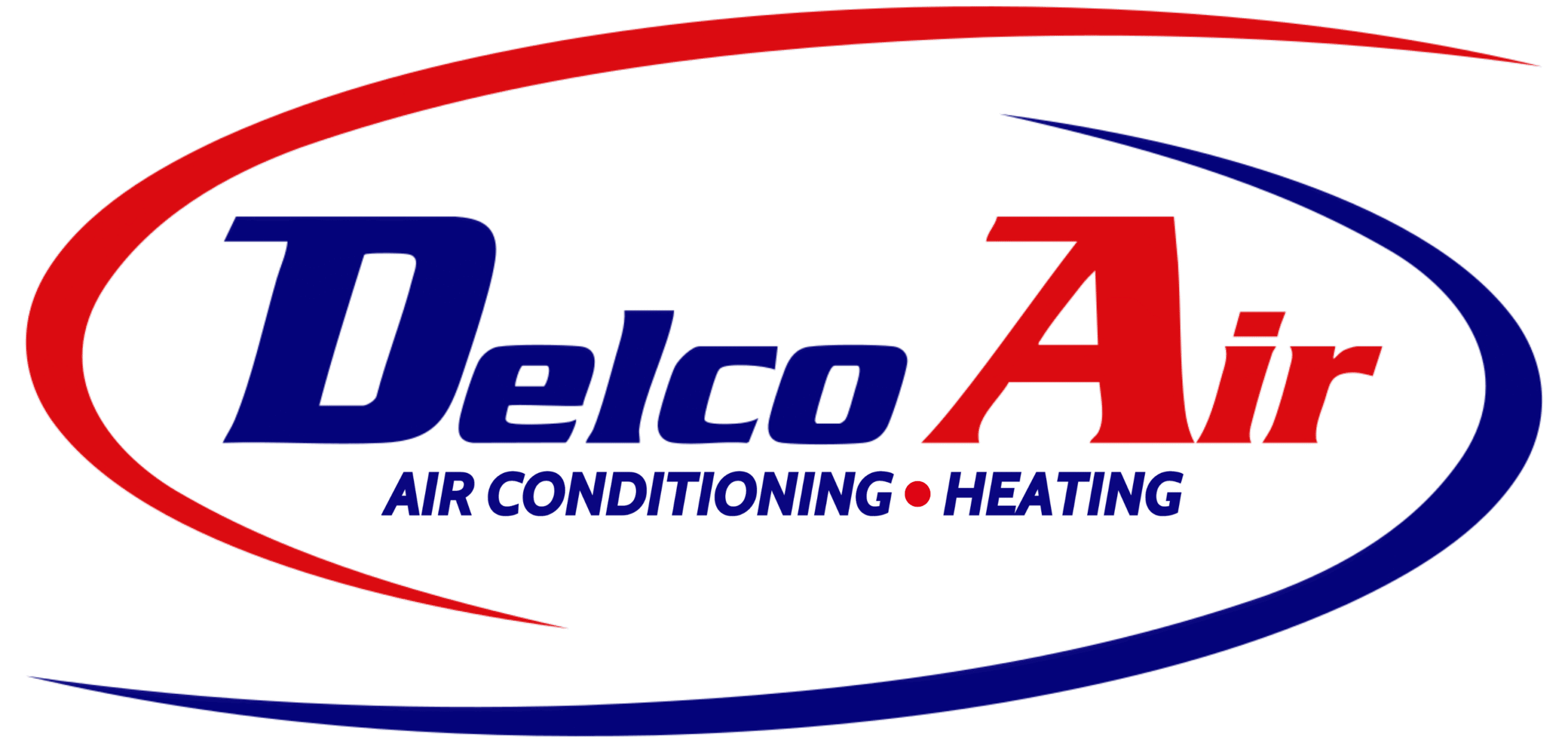Understanding HVAC Services in New Jersey: Residential vs. Commercial Needs

Are you aware of the distinct HVAC needs between residential and commercial properties in New Jersey? Understanding these differences is vital for ensuring efficient operation and effective customer service. This article will delve into how HVAC services cater specifically to homes and businesses, the importance of boiler repair, and the role of heat pump installations. Readers will learn how to address common concerns related to fuel efficiency and emergency service requirements, ultimately enhancing their indoor environments.
Understanding HVAC Services in New Jersey for Residential Needs

Residential HVAC systems in New Jersey feature essential elements like heating and air conditioning units, tailored for home comfort. Common HVAC issues faced by homeowners include inadequate heating, frequent breakdowns, and uneven temperatures. Regular maintenance, including air conditioning services and boiler services, is vital to avoid costly repairs and ensure efficiency. Cost considerations, particularly for plumbing and boiler repair services, also play a key role in decision-making for homeowners.
Key Features of Residential HVAC Systems
Residential HVAC systems in New Jersey comprise several key features designed to ensure home comfort and efficiency. These systems often include components such as heat pumps, which serve both heating and cooling functions, and advanced filtration systems that improve indoor air quality. Homeowners should be aware of the importance of regular maintenance, including chimney inspections, air conditioning services, boiler services, and timely emergency repairs, to prevent breakdowns and costly replacements, thereby safeguarding their investment in a comfortable living environment.
Common HVAC Issues in Homes
Many homeowners in New Jersey encounter common HVAC issues that can disrupt comfort and efficiency. Problems such as malfunctioning heat exchangers or inadequate installation of heat pumps often lead to inconsistent heating and higher energy costs. geothermal heat pumps present a sustainable solution, but if not properly installed or maintained, they may also face difficulties, furthering the need for regular inspections and timely repairs to ensure reliable performance and system longevity. Additionally, professional air conditioning services and boiler services are essential to maintain optimal HVAC system functionality.
Importance of Regular Maintenance for Home HVAC Systems
Regular maintenance of home HVAC systems, including air conditioning services, is vital for optimal performance and longevity, particularly in New Jersey‘s varied climate. Homeowners should pay attention to key aspects such as boiler maintenance and boiler services, which ensures the pilot light functions correctly, maintaining efficient pressure levels for heating. Additionally, proactive heat pump services can identify and resolve issues before they require costly replacements, ultimately providing a more comfortable living environment.
Cost Considerations for Residential HVAC Installations
Cost considerations for residential HVAC installations in New Jersey significantly impact customer decisions. A heat pump install may vary in price based on factors such as the system size and installation complexity, while boiler replacement and boiler services can also incur various costs related to efficiency ratings and additional features. Furthermore, homeowners must account for potential wildfires and other seasonal changes that could influence system durability and maintenance expenses, making it crucial to seek expert guidance and air conditioning services for a tailored and cost-effective solution.
Understanding HVAC Services in New Jersey for Commercial Needs
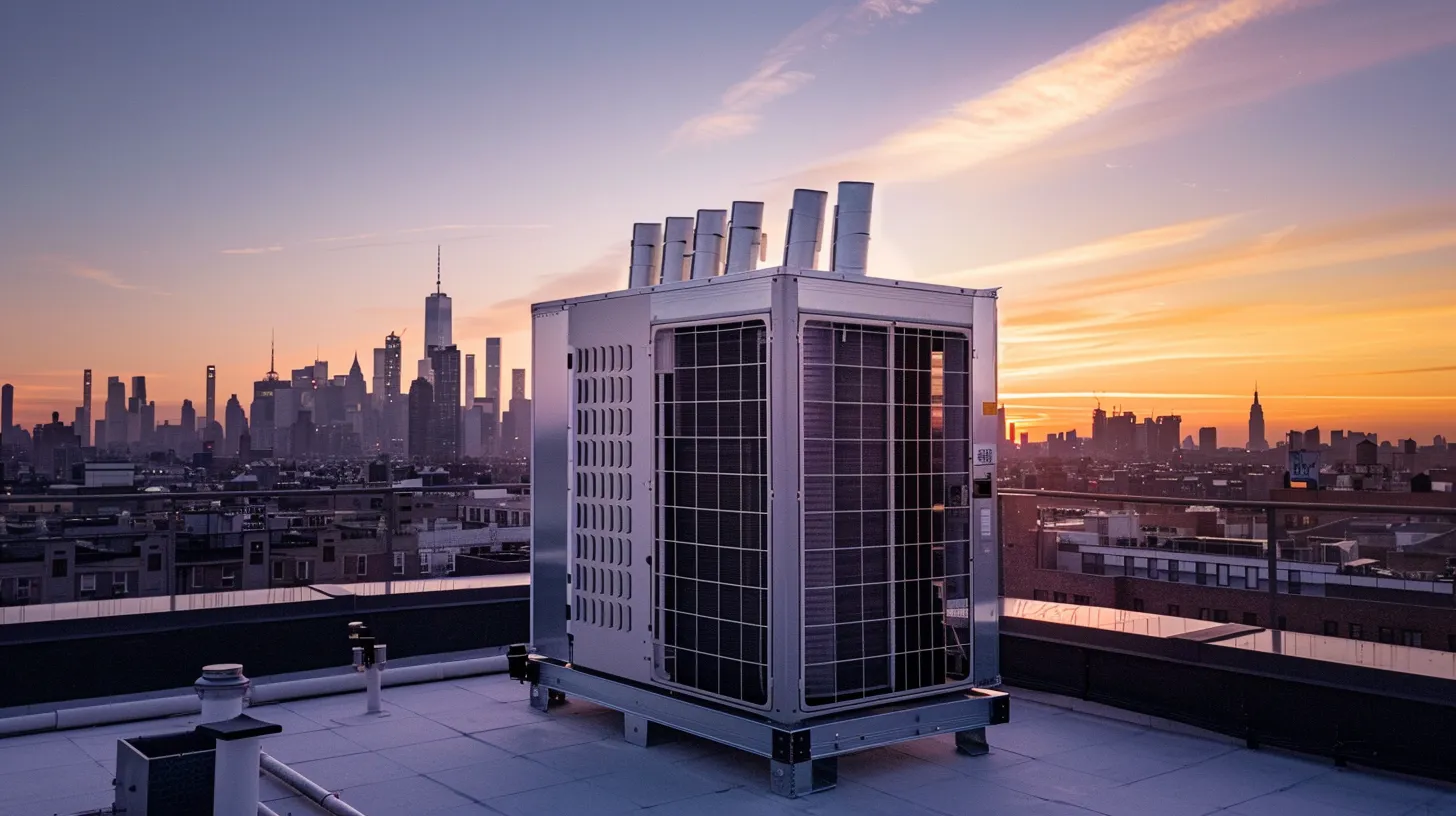
Commercial HVAC systems in North Jersey require unique considerations, including effective air conditioning services for managing air pollution and ensuring energy efficiency. Challenges such as carbon emissions and smoke management are critical for businesses. Typical HVAC solutions, like heat pump installations and boiler services, address these needs while optimizing performance, providing businesses with a comfortable and sustainable environment.
Unique Requirements of Commercial HVAC Systems
Commercial HVAC systems in New Jersey face distinct requirements that differ from residential setups. These systems must efficiently manage larger spaces, necessitating robust air handlers, air conditioning services, and dependable furnaces to maintain optimal indoor climates. Additionally, budget considerations are essential, as businesses often seek cost-effective solutions, including regular boiler services and proper refrigerant management, to enhance system longevity and operational efficiency.
Term:
Challenges in Maintaining Commercial HVAC Systems
Maintaining commercial HVAC systems in New Jersey poses several challenges that require careful consideration. One primary concern is managing noise levels, which can disrupt business operations and employee productivity. Additionally, regular maintenance, including air conditioning services, is crucial to ensure heat pump service optimizes climate control and energy efficiency. boiler services can also help business owners prioritize scheduling service and addressing maintenance needs proactively to prevent costly breakdowns and maintain a conducive working environment.
Energy Efficiency Considerations for Businesses
Energy efficiency is a primary concern for businesses in New Jersey, as it directly affects operational costs and overall health. Implementing measures such as advanced humidifiers helps maintain optimal indoor air quality, which can enhance employee productivity. Businesses should also watch for leaks in the HVAC system and utilize air conditioning services and boiler services, as even minor gaps can lead to energy loss, significantly impacting monthly expenses and service performance.
Typical HVAC Solutions for Commercial Properties
Commercial properties in New Jersey often rely on a variety of HVAC solutions and air conditioning services to meet their unique heating and cooling requirements. For instance, businesses may opt for air source heat pump installations to efficiently manage temperature and optimize electricity usage. Additionally, using a duct system can enhance air distribution, while employing boiler services for water heating ensures that consistent hot water is readily available for various operational needs.
The Differences Between Residential and Commercial HVAC Services
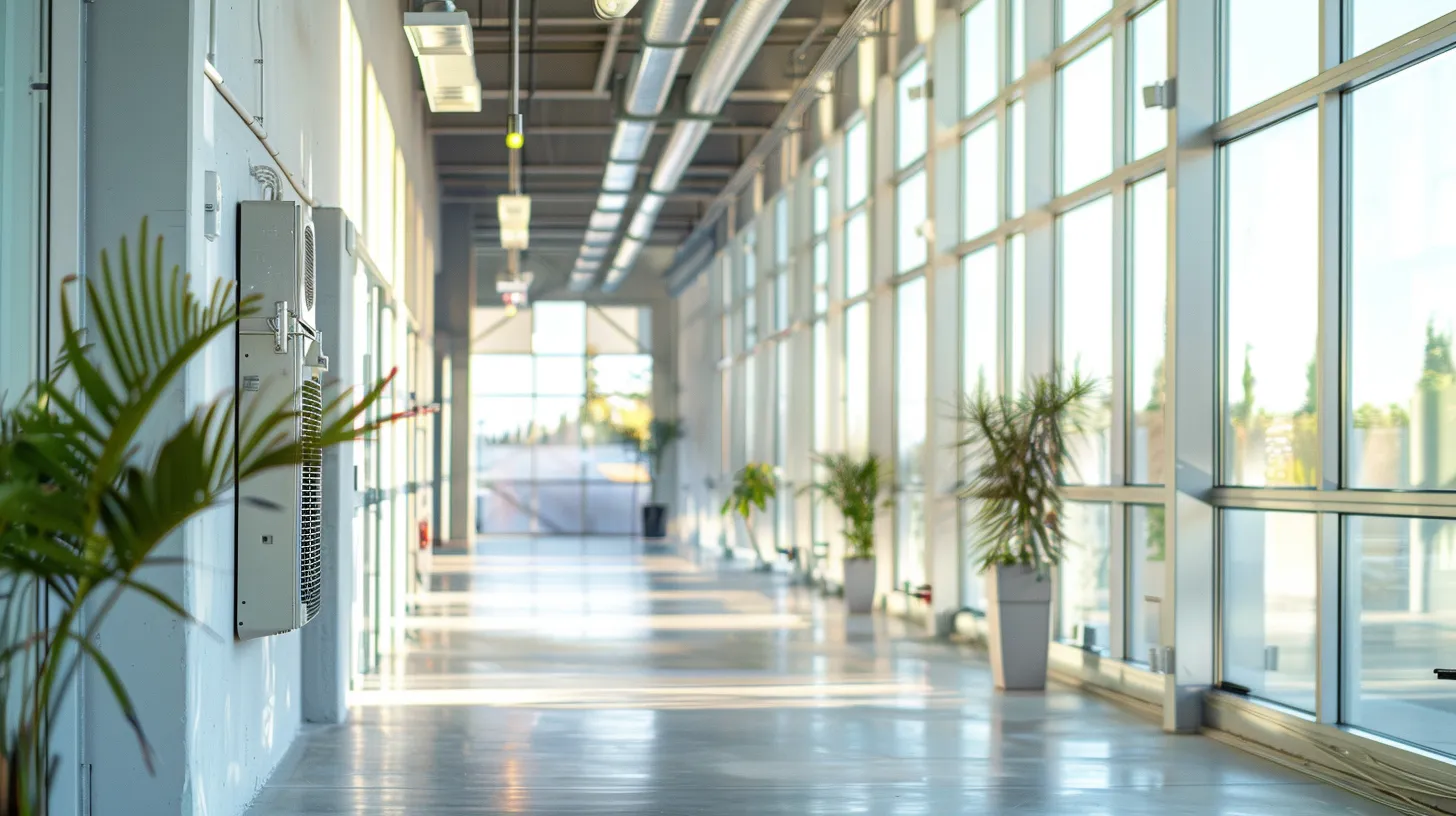
The differences between residential and commercial HVAC services are significant, stemming from variations in system size and capacity. Operating costs and energy consumption factors also differ, impacting budgeting decisions. Additionally, service frequency and maintenance requirements vary greatly, influencing the effectiveness of heating and cooling solutions, such as boiler services and air conditioning services, and heat pumps. Understanding these distinctions is key for optimal performance and efficiency.
System Size and Capacity Variations
The system size and capacity of HVAC solutions in New Jersey vary significantly between residential and commercial settings. Residential systems are typically designed for smaller spaces, accommodating the specific heating and cooling needs of homes, while commercial systems must manage larger environments, requiring robust pipe systems and more powerful units to ensure efficient operation. In New York City, where smog can affect air quality, businesses benefit from larger systems that not only provide effective water heating through boiler services but also offer air conditioning services to combat allergens, creating healthier indoor conditions for employees and customers alike.
Operating Costs and Energy Consumption Factors
Operating costs and energy consumption factors play a significant role in both residential and commercial HVAC services, including air conditioning services, in New Jersey. Businesses often need to consider environmentally friendly options, such as systems with high annual fuel utilization efficiency, to minimize utility expenses while ensuring effective climate control. Furthermore, when dealing with potential hazards like carbon monoxide, working with a qualified plumber for boiler installation and boiler services becomes essential to maintain safety and efficiency, ultimately benefiting both comfort and cost-effectiveness.
Service Frequency and Maintenance Requirements
Service frequency and maintenance requirements for HVAC systems, including air conditioning services, differ markedly between residential and commercial applications in New Jersey. Commercial systems, such as those utilizing condensing boilers and flue systems, generally require more frequent inspections and maintenance due to their larger size and heavier usage, often operating on natural gas to maximize energy efficiency. In contrast, residential systems typically have less demanding schedules, but regular check-ups still remain essential for ensuring optimal performance and addressing any potential issues early.
Importance of Boiler Repair Services in New Jersey
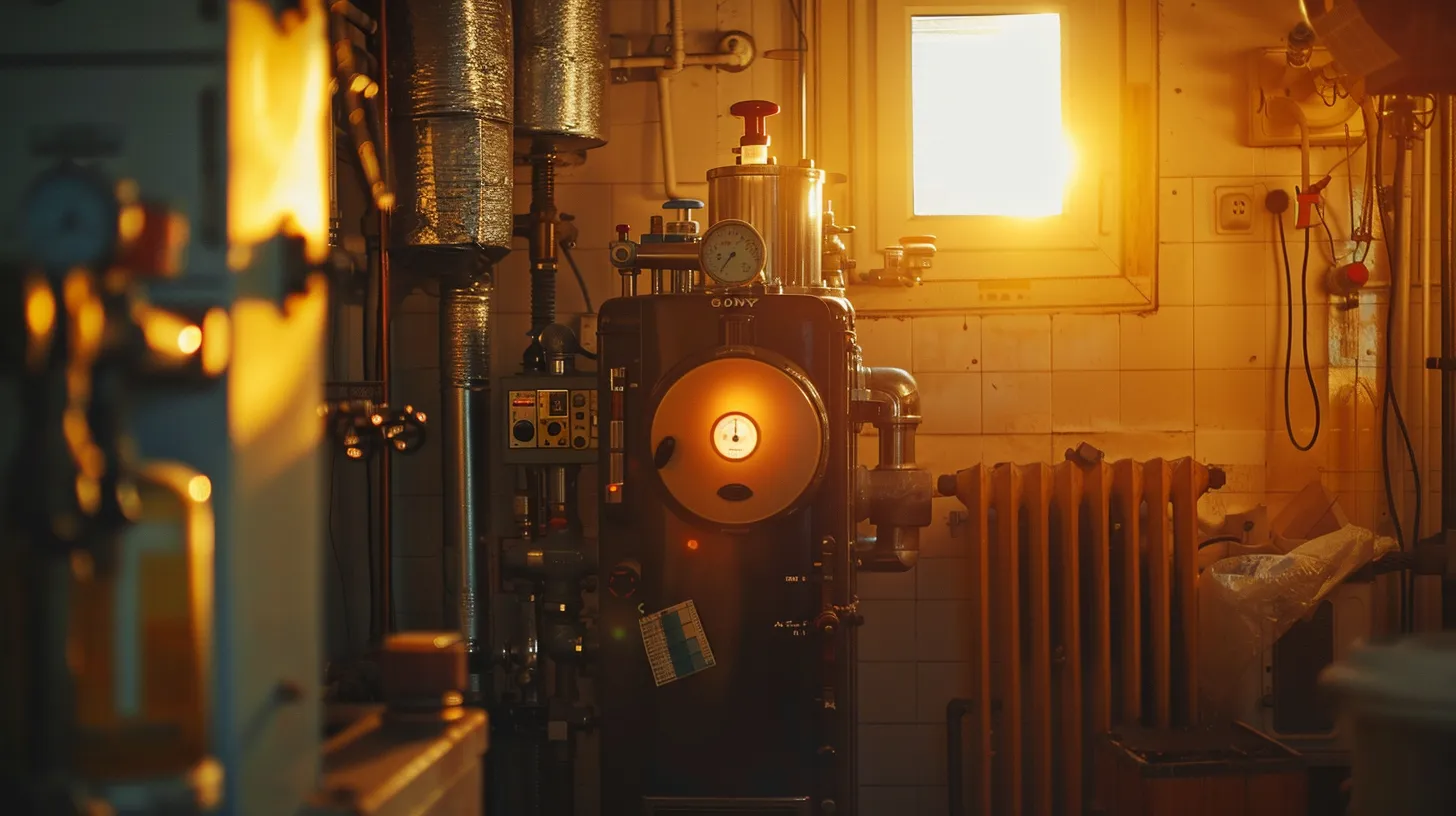
Recognizing signs of boiler failure is essential for maintaining a safe and efficient heating system. Neglecting boiler repairs can lead to costly breakdowns and deteriorated indoor air quality. Best practices for boiler maintenance and boiler services, including regular inspections and proper thermostat settings, ensure long-term performance and reliability. Additionally, air conditioning services help maintain overall indoor climate control. Addressing these topics is vital for homeowners and businesses in Manhattan to safeguard their investments.
Recognizing Signs of Boiler Failure
Recognizing signs of boiler failure is crucial for both homeowners and businesses in South Jersey to prevent costly repairs and ensure safety. Common indicators include unusual noises, such as banging or whistling, which may suggest issues with the pump installation or internal components. Additionally, fluctuations in temperature or unexplained increases in oil consumption can signal the need for professional furnace services, boiler services, and air conditioning services, highlighting the importance of having knowledgeable technicians available to address these concerns promptly.
Impact of Neglecting Boiler Repairs
Neglecting boiler repairs can lead to a range of serious issues, significantly impacting safety and comfort. Failure to address small problems often results in more extensive damage, potentially requiring a boiler replacement, which can be costly. Moreover, a malfunctioning boiler can compromise indoor air quality, releasing harmful ozone and leading to health concerns, particularly if air filters are not regularly checked and maintained with professional air conditioning services. This reinforces the importance of timely boiler services to maintain both system efficiency and compliance with warranty requirements, protecting investments in construction and ensuring a safe living or working environment.
Boiler Maintenance Best Practices
Implementing effective boiler maintenance plans and boiler services is essential for both residential and commercial properties in New Jersey. Regular inspections not only help identify potential issues early but also provide valuable data on system performance, ensuring optimal operation. Additionally, understanding how boiler maintenance integrates with other HVAC elements, such as air conditioning services and ductless systems, can enhance overall efficiency, leading to improved comfort and reduced energy costs.
Heat Pump Installation Needs in New Jersey
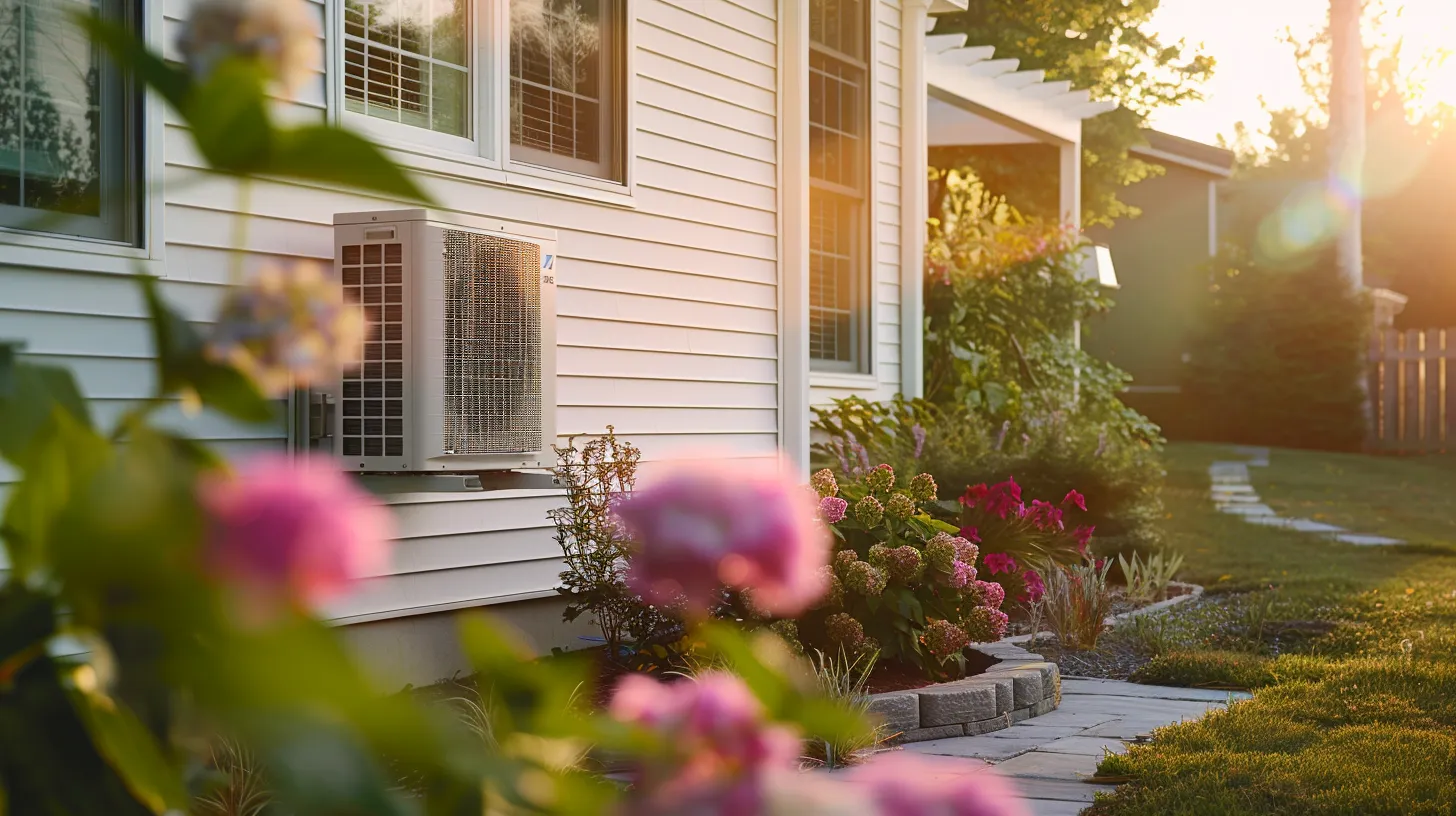
Installing heat pumps in New Jersey offers several advantages, including energy efficiency and reduced lung-related health concerns from improved air quality. Sizing considerations are essential to ensure effective performance, while unique installation challenges exist for residential and commercial properties, including air conditioning services and boiler services. Understanding these factors allows homeowners and businesses to make informed decisions that enhance comfort and address particulates that could impact their environment.
Advantages of Installing Heat Pumps
Installing heat pumps in New Jersey provides several advantages for both residential and commercial properties. These systems not only offer efficient heating and cooling solutions, including air conditioning services, but also reduce energy consumption, leading to lower utility bills. With proper heat pump and boiler services maintenance, property owners can prolong the lifespan of their units, while skilled technicians ensure that the compressor operates effectively, enhancing overall performance and minimizing pollutants released into the environment.
Sizing Considerations for Heat Pumps
Sizing considerations for heat pumps are critical for ensuring optimal performance in both residential and commercial applications in New Jersey. Properly sizing a ground source heat pump involves calculating the heating and cooling load specific to the space, which helps to prevent issues such as excessive energy consumption and inadequate temperature control. Homeowners should also consider their existing boiler services needs and how a heat pump replacement might fit into their overall HVAC strategy, including air conditioning services, especially for those with respiratory concerns like asthma, as efficient systems can improve indoor air quality significantly.
Installation Challenges in Different Property Types
Installation challenges for heat pumps, air conditioning services, and boiler services in New Jersey vary between residential and commercial properties, impacting the effectiveness of air handlers and overall system performance. For residential homes, space limitations and existing ductwork configurations may pose risks, as improper integration can lead to inefficiencies and increased energy costs. Commercial installations, on the other hand, often involve managing larger air distributions and ensuring compliance with local codes, which necessitates careful planning and expert interventions to minimize installation-related issues.
Improving Indoor Air Quality in New Jersey Homes and Businesses
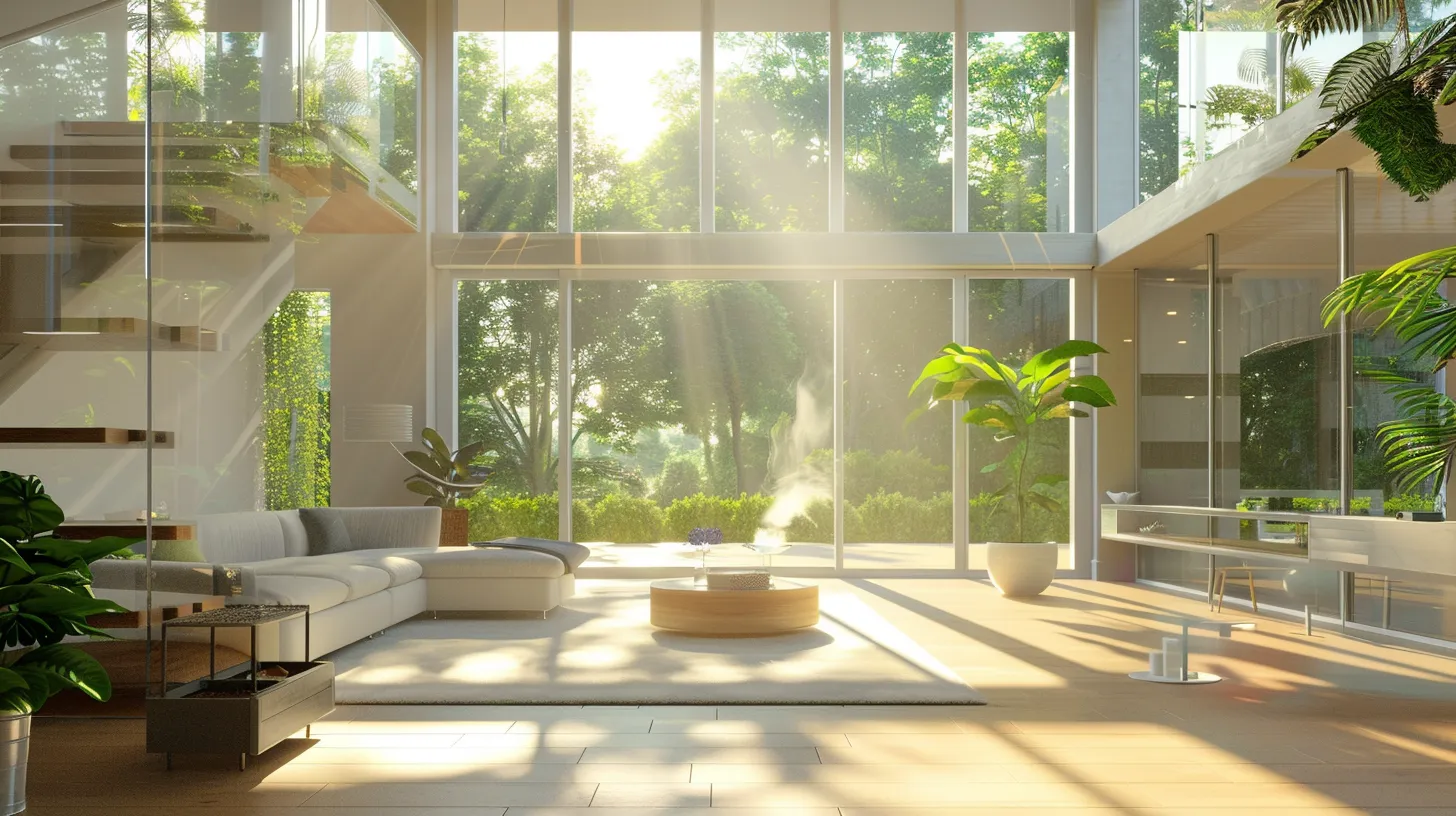
Common indoor air quality issues, such as allergens and pollutants, can affect the health and comfort of occupants in New Jersey homes and businesses. HVAC systems, including air conditioning services and boiler services, play a crucial role in maintaining air quality by regulating ventilation and filtration. Regular air quality assessments can identify potential problems, while simple tips can help enhance indoor environments effectively.
Addressing these aspects ensures that both residential and commercial spaces remain safe and welcoming by incorporating air conditioning services and boiler services, paving the way for a deeper understanding of the specific solutions available for improving air quality in diverse settings.
Common Indoor Air Quality Issues and Solutions
Indoor air quality issues, such as high levels of dust, allergens, and volatile organic compounds, pose significant health risks in both residential and commercial settings in New Jersey. HVAC systems, including air conditioning services, play a vital role in managing these concerns by ensuring proper ventilation and using advanced filtration methods, such as HEPA filters, to trap harmful particles. Regular maintenance, including boiler services, and air quality assessments can help identify problems early, allowing homeowners and business owners to implement solutions that enhance their environment and promote well-being.
The Role of HVAC Systems in Air Quality
HVAC systems play a vital role in enhancing indoor air quality by regulating ventilation and filtering pollutants in both residential and commercial settings across New Jersey. By utilizing advanced filtration methods, such as HEPA filters, these systems can effectively trap allergens, dust, and other harmful particles, contributing to a healthier living and working environment. Regular maintenance of HVAC systems, including air conditioning services and boiler services, further ensures optimal performance, helping to reduce respiratory issues and improve overall comfort for occupants.
Benefits of Regular Air Quality Assessments
Regular air quality assessments provide significant advantages for both residential and commercial HVAC systems in New Jersey. By identifying allergens, pollutants, and other harmful particles early, property owners can take necessary steps to improve indoor conditions, ensuring a healthier environment for occupants. Furthermore, these assessments enhance HVAC performance and air conditioning services, leading to more efficient systems that can contribute to reduced energy costs and increased comfort.
Tips for Enhancing Indoor Air Quality
To enhance indoor air quality in New Jersey homes and businesses, maintaining HVAC systems through regular air conditioning services and boiler services is essential. Regular filter changes and cleaning of ducts prevent the accumulation of dust and allergens, significantly improving air circulation. Moreover, using air purifiers can target specific pollutants, creating a healthier environment for occupants and reducing respiratory issues.
Conclusion
Understanding HVAC services in New Jersey is crucial for addressing the distinct needs of residential and commercial properties. Homeowners must prioritize maintenance to avoid costly repairs and enhance comfort, while businesses need to focus on energy efficiency to minimize operational costs. Recognizing the differences in system size, capacity, and maintenance requirements allows property owners to make informed decisions that optimize performance. Ultimately, investing in proper HVAC services significantly contributes to healthier indoor environments and greater long-term savings.
